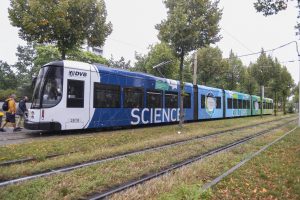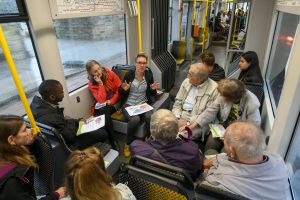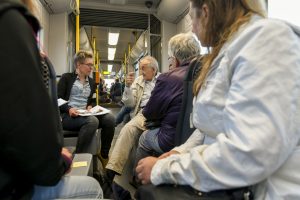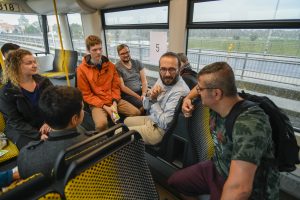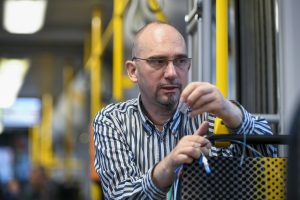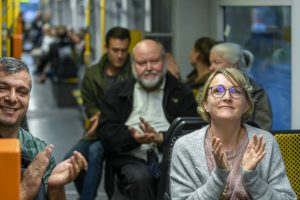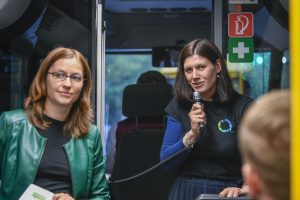Cancer, Alzheimer and other serious diseases
When diagnosed with cancer or Alzheimer‘s disease, patients struggle with despair, sadness, anxiety and are preoccupied with medications and treatment options. Researchers worldwide are therefore looking for the ultimate drug. However, such a cure-all cannot be found within one day. A cure depends first and foremost on research: a fact that is often forgotten. Furthermore, the pathology can vary from patient to patient. Dresden-based scientists address the challenges of these and other diseases. During the DRESDEN-concept Science Tram Ride, you will gain insight into current research on stem cell transplantation, retina research, Alzheimer‘ s disease and fundamental medical research.
Scientists in Dresden are dealing with these and numerous other diseases.
In the DRESDEN-concept Science Tram on September 16 from 5 pm our guests got an insight into the current research on the topics of stem cell transplantation, retina research, Alzheimer’s disease and basic research in medicine and can ask the experts questions.
During the 1 ½ h-hour journey, which started at the Strassburger Platz (at the Gläserne Manufaktur), the experts change dseats in the tram five times and answered questions. As always, the ride was free of charge.
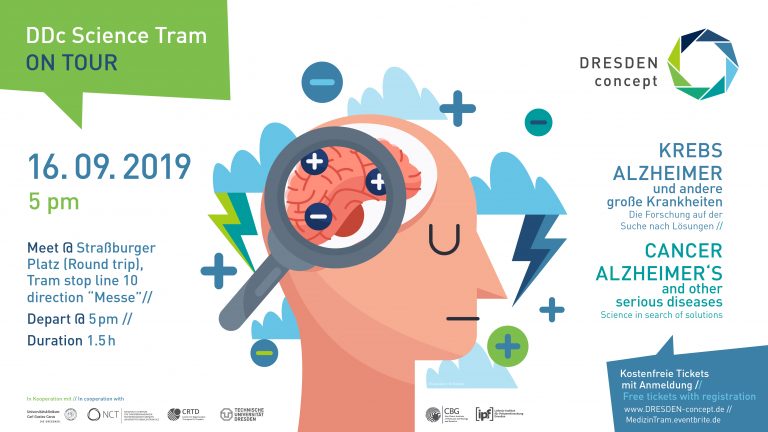
The Experts were:
Dr. Martin Stöter from the Max Planck Institute of Molecular Cell Biology and Genetics is a graduate biochemist and scientist at the High-Throughput Technology Development Studio (TDS). There he develops automated experimental set-ups in the field of high-throughput screening. During the tram ride, he answers questions such as: What is a drug? How long does it take to develop a drug from a discovery in basic research?
Dr. Oliver Borsch is a scientist at the CRTD / DFG Center for Regenerative Therapies at the TU Dresden and is involved in retina research. If we lose our eyesight due to diseases of the retina of the eye, this represents a serious change in the quality of life. With his research, Oliver Borsch is looking for solutions.
PD Dr. Manja Wobus is a graduate biologist and for over ten years head of the experimental stem cell laboratory at the Medical Clinic 1 in the field of haematology/oncology. Her research interests are tumor and cell biology. Her job at the University Hospital is particularly attractive and challenging, as her goal is to develop new diagnostic and therapeutic options for cancer patients every day. (University Hospital Carl Gustav Carus Dresden)
Dr. Caghan Kizil is a neuroscientist and heads the Helmholtz Young Investigators Group at the German Centre for Neurodegenerative Diseases (Kizil Lab at DZNE Helmholtz Association) in Dresden. He wants to understand how our brain can form new neurons when we suffer from Alzheimer’s disease. His laboratory is working on zebrafish, a pioneer of brain regeneration, and 3D models of human neuronal networks.
At the Leibniz Institute for Solid State and Materials Research, Dr. Manfred Maitz develops materials and coatings for catheters, vascular stents, heart valves and artificial blood washing (dialysis). New strategies are used to suppress blood coagulation and inflammation on these materials, making the implants even safer for patients.
